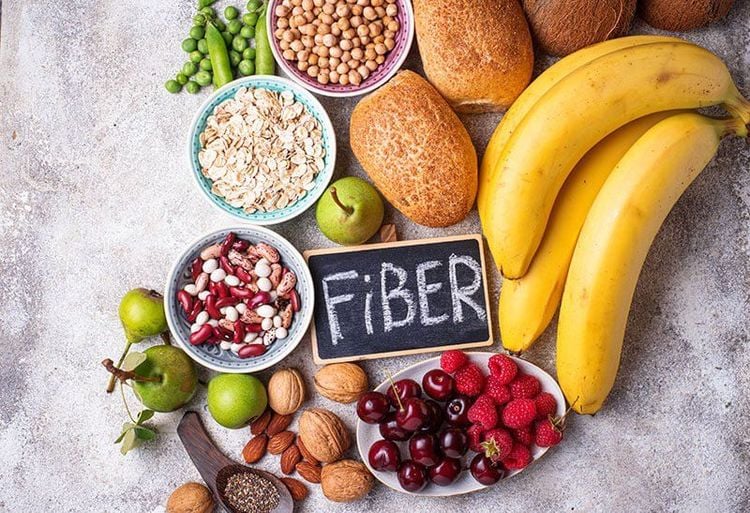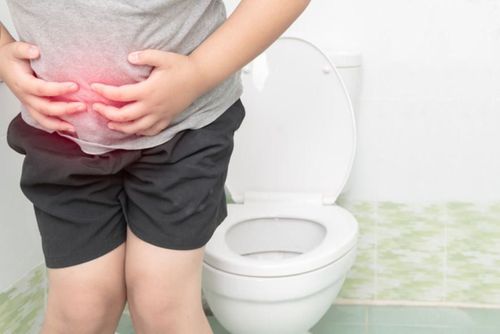This is an automatically translated article.
Posted by Master, Doctor Mai Vien Phuong - Department of Examination & Internal Medicine - Vinmec Central Park International General Hospital
Constipation is a common complication in people with diabetes. Living with diabetes means paying careful attention to all of your body's systems. Some complications of diabetes can be easily avoided or managed with proper blood glucose control. However, when it comes to managing constipation, dietary and lifestyle changes may not be enough. Here's what to know about why diabetes happens more often and what you can do to fix it.
1. Is constipation common?
Constipation can be defined as having fewer than three regular bowel movements per week. It can also be defined as unsatisfactory bowel movements with infrequent and difficult stools. It can be uncomfortable and even painful.
A recent study found that constipation is more common in people with diabetes. It is estimated that about 60% of people with long-standing diabetes deal with constipation.
2. What causes diabetic constipation?
Nervous system damage is a long-term complication of diabetes. High blood sugar from type 1 and type 2 diabetes can lead to diabetic neuropathy or nerve damage. Damage to the nerves that control the digestive tract can lead to constipation, diarrhea, and fecal incontinence.
Poor blood sugar control over the long term can increase the likelihood and frequency of constipation.
In addition to lifestyle and neurological choices, people with diabetes sometimes take medications that can slow bowel movements and cause constipation. Talk to your doctor about the side effects of any medications you take.
Daily Diabetes Tips
If you feel stopped from time to time, you are not alone. Recent research indicates that constipation is common in people with diabetes. Find relief by starting with natural solutions: Eat more fiber, drink plenty of water, and increase physical activity. If you don't notice an improvement, talk to your doctor about switching to a fiber supplement, stool softener, or laxative.

3. Treatment of constipation
Natural options
Simple solutions are the best place to start. Try increasing your fiber intake, drinking more water, and being physically active more often. All of these can help the digestive system work more smoothly.
While it can be helpful to start with natural solutions for constipation, people with diabetes may find that these solutions don't do much if there are larger underlying problems.
Laxatives
Laxatives can also help with pain, but you should use them carefully. Before turning to laxatives as a potential treatment, consult your doctor. Some laxatives are not for long-term use.
Your doctor can find the least intensive treatment to ease your bowel movements. They may ask you to try:
Osmotic laxatives Stool softeners Bulk laxatives Lubricants Blood sugar control
In many cases, proper blood glucose management is the best solution to Digestive regulation and anti-constipation in diabetes. It prevents nerve damage that can lead to constipation, regardless of your diet or activity level.
4. How to prevent constipation
Changing your diet and increasing your level of physical activity are the easiest and fastest ways to treat and prevent constipation. Try the following techniques:
Every day, drink more than 2 liters of sugar-free, caffeine-free liquids, like water, to stay hydrated.

Limit drinking alcohol and caffeinated beverages that cause dehydration. Add high-fiber foods to your diet, such as raw fruits and vegetables, whole grains, beans, prunes, or whole grains. Your daily fiber intake should be between 20 and 35 grams. Cut down on low-fiber foods, such as meat, dairy, cheese, and processed foods. Aim for about 150 minutes of moderate exercise per week, with a goal of 30 minutes per day at least five times per week. Try walking, swimming, or biking. If you feel the urge to have a bowel movement, don't delay. The longer you wait, the harder your stool may become. Add fiber supplements to your diet if needed. Just remember to drink plenty of water because fluids help fiber work more efficiently. Use laxatives sparingly. Your doctor may prescribe a laxative or enema for a short time to help soften the stool. Never use a laxative for more than two weeks without talking to your doctor. Your body may become dependent on them for proper colon function.
Consider adding probiotics to your diet, such as those found in yogurt and kefir with active live cultures. Studies have shown that this dietary change can be helpful for people with chronic constipation.
If you are still struggling with constipation, your doctor can prescribe medication to help you.
According to a research source, linaclotide (Linzess) is recommended for people with IBS-related constipation.
These drugs work by increasing excretion in your intestines, making it easier for stool to pass.
Your doctor may also advise you to stop taking certain medications that can cause constipation.
More serious colon or rectal problems may require manual procedures to clear the colon of impacted stool, therapy to retrain slow muscles, or surgery to remove portion of the bowel. old problem.
Conclusion
While constipation can be a sign of poor long-term diabetes control, it can also be caused by something as simple as not getting enough fiber. By moving from the simplest to the most intensive solutions with the help of your doctor, you may find that your constipation can be controlled with lifestyle changes and without the need for medication.
Department of Endoscopy - Gastroenterology is one of the key specialties at Vinmec International General Hospital. For timely examination, advice and treatment of digestive diseases, you can contact Vinmec Health System nationwide or register online on the website for service.
Please dial HOTLINE for more information or register for an appointment HERE. Download MyVinmec app to make appointments faster and to manage your bookings easily.
ReferenceCash BD. (2018). Understanding and managing IBS and CIC in the primary care setting. ncbi.nlm.nih.gov/pmc/articles/PMC6158925/ Colonoscopy. (2017). niddk.nih.gov/health-information/diagnostic-tests/colonoscopy Constipation. (2015). my.clevelandclinic.org/health/diseases/4059-constipation Magro DO, et al. (2014). Effect of yogurt containing polydextrose, Lactobacillus acidophilus NCFM and Bifidobacterium lactis HN019: A randomized, double-blind, controlled study in chronic constipation. DOI: 10.1186/1475-2891-13-75 Mayo Clinic Staff. (2019). Constipation. mayoclinic.org/diseases-conditions/constipation/symptoms-causes/syc-20354253














